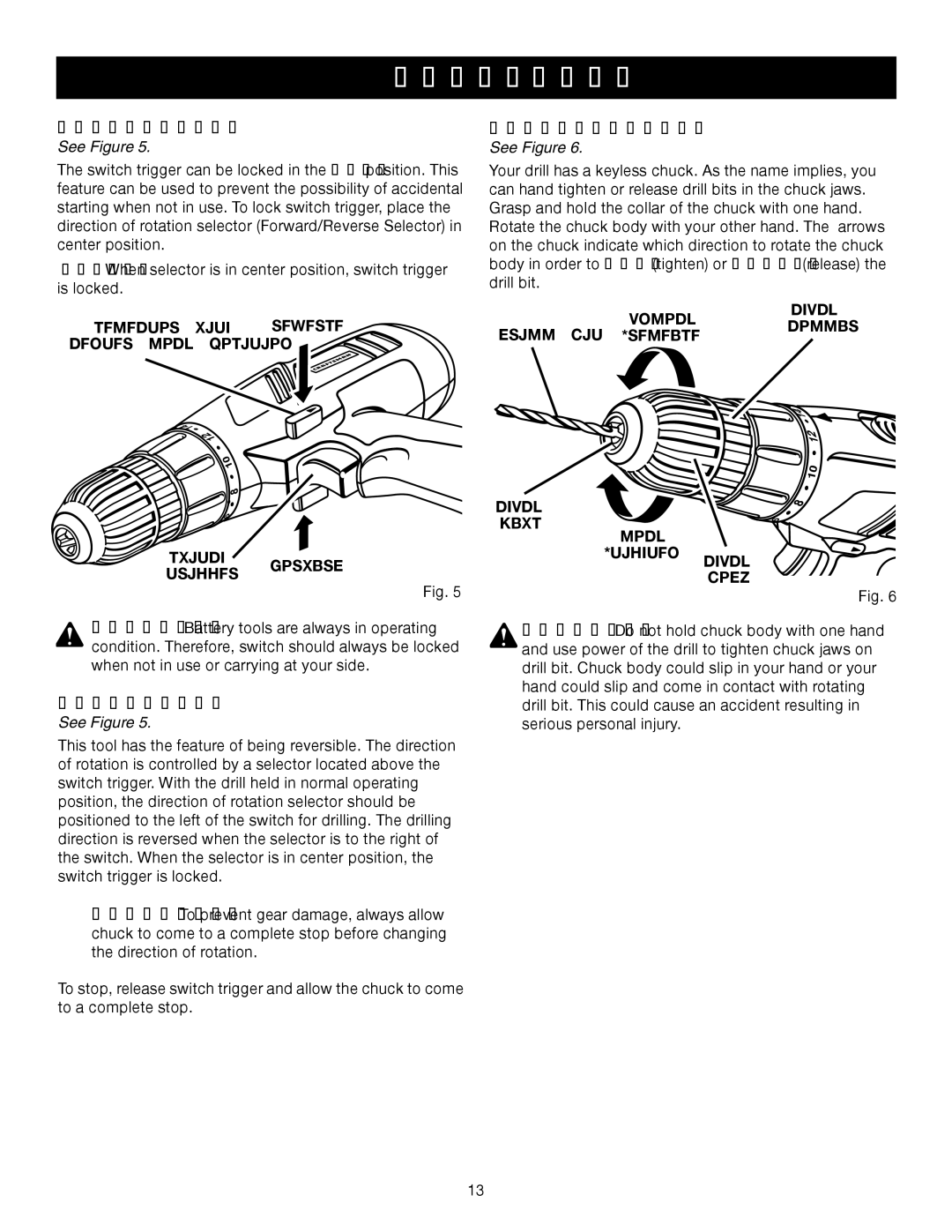
OPERATION
SWITCH LOCK
See Figure 5.
The switch trigger can be locked in the OFF position. This feature can be used to prevent the possibility of accidental starting when not in use. To lock switch trigger, place the direction of rotation selector (Forward/Reverse Selector) in center position.
Note: When selector is in center position, switch trigger is locked.
SELECTOR WITH | REVERSE |
CENTER LOCK POSITION |
|
SWITCH FORWARD
TRIGGER
Fig. 5
WARNING: Battery tools are always in operating condition. Therefore, switch should always be locked when not in use or carrying at your side.
REVERSIBLE
See Figure 5.
This tool has the feature of being reversible. The direction of rotation is controlled by a selector located above the switch trigger. With the drill held in normal operating position, the direction of rotation selector should be positioned to the left of the switch for drilling. The drilling direction is reversed when the selector is to the right of the switch. When the selector is in center position, the switch trigger is locked.
CAUTION: To prevent gear damage, always allow chuck to come to a complete stop before changing the direction of rotation.
To stop, release switch trigger and allow the chuck to come to a complete stop.
KEYLESS CHUCK
See Figure 6.
Your drill has a keyless chuck. As the name implies, you can hand tighten or release drill bits in the chuck jaws. Grasp and hold the collar of the chuck with one hand. Rotate the chuck body with your other hand. The arrows on the chuck indicate which direction to rotate the chuck body in order to LOCK (tighten) or UNLOCK (release) the drill bit.
| UNLOCK | CHUCK | |
DRILL BIT | COLLAR | ||
(RELEASE) | |||
|
CHUCK JAWS
LOCK
(TIGHTEN) CHUCK BODY
Fig. 6
WARNING: Do not hold chuck body with one hand and use power of the drill to tighten chuck jaws on drill bit. Chuck body could slip in your hand or your hand could slip and come in contact with rotating drill bit. This could cause an accident resulting in serious personal injury.
13
